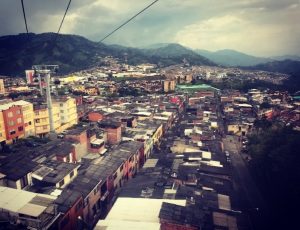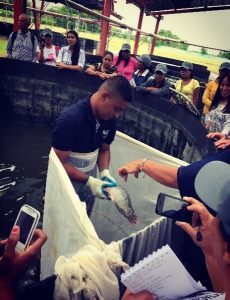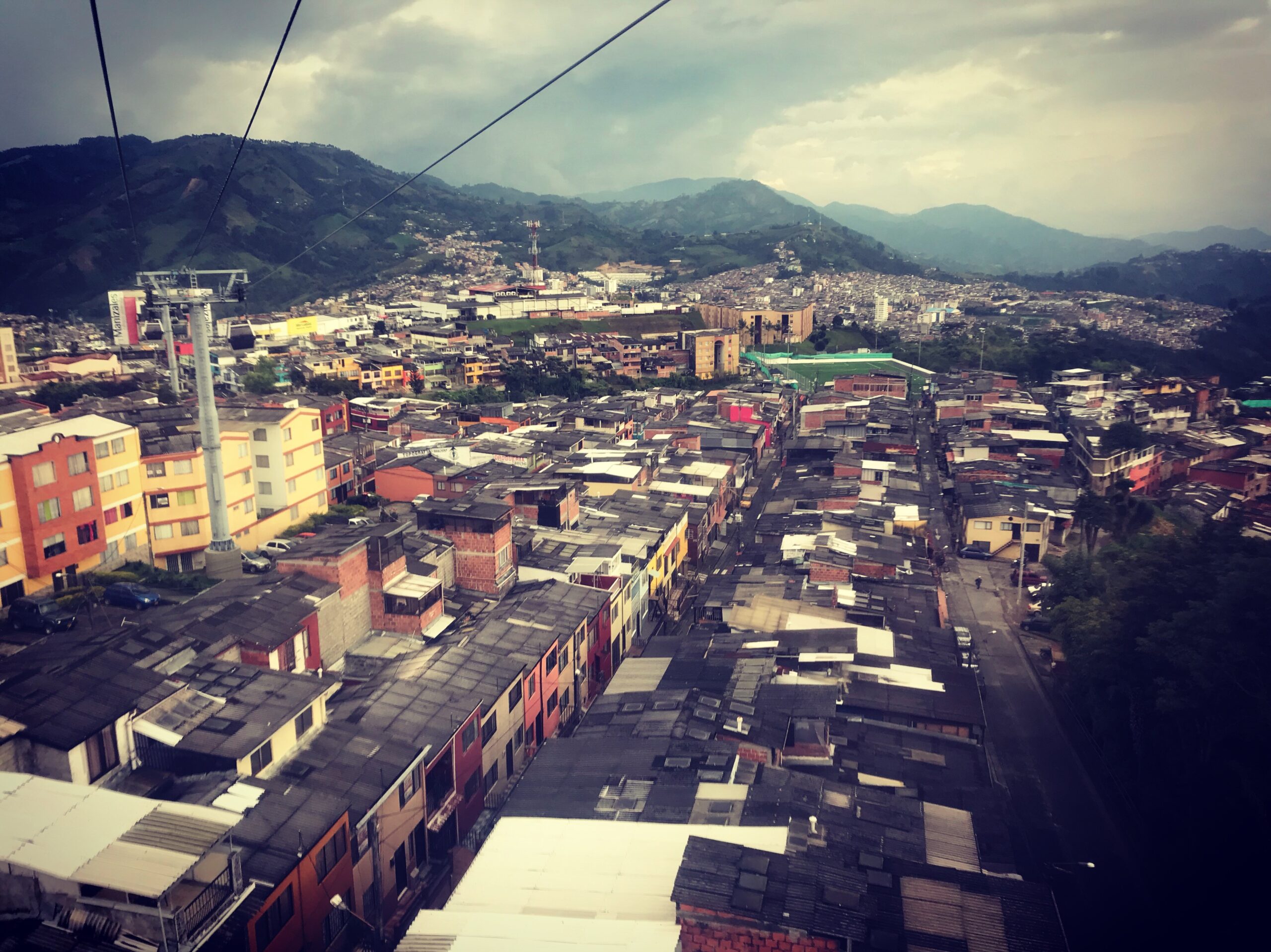Evaluating Colombia’s Country Programme under the Prosperity Fund
In consortium, Integrity implements the Evaluation and Learning component of the UK government’s £1.2 billion Prosperity Fund (2017-2022). Colombia is one of three Latin American bilateral programmes included in the Prosperity Fund where Integrity is currently supporting the first independent annual evaluation.

©Helen Stevenson, One of the first PF urban development projects is underway in the city of Manizales, an integrated public transport system.
Colombia faces considerable challenges as a rapidly developing middle-income country. Some of these challenges include rapid urbanisation, climate change and high and persistent inequality, which can lower long-term growth prospects. The Prosperity Fund supports the broad-based and inclusive growth needed for poverty reduction. The Colombia country programme implemented by the UK Foreign and Commonwealth Office (FCO) aims to support economic development, unlock economic opportunities for Colombia and international businesses and drive inclusive growth in post-conflict and conflict-affected regions. The £25.5 million programme focuses on three key sectors, infrastructure, agriculture and institutional strengthening.
The first evaluation cycle was initiated in parallel to the Colombia programme’s implementation in 2018. This was done in close consultation with the British Embassy delivery team and implementing partners. Early activities included designing an evaluation methodology and project sampling strategy, as well as assembling a team, including Colombian nationals with evaluation and specific thematic expertise. Using a theory-based approach, the evaluation team reviewed all existing and relevant background documents to complement primary data collection this year. Primary data collection focused on key informant interviews (KIIs).
The Evaluation Lead and Integrity Senior Evaluator led KIIs with a range of stakeholders including all implementing partners in Bogotà, the British Embassy programme team and Implementing Partners, as well as a wide range of beneficiaries in three other cities across Colombia: Manizales, Pereira and Monteria. These beneficiaries included regional government officials, representatives from the Mayor’s offices and smallholder farmers.

©Helen Stevenson, One of the PF Agri-Tech projects implemented in the coastal city of Monteria, with a focus on sustainable tilapia breeding and farming
Since July 2019, the evaluation team has carried out data cleaning, translation, coding and analysis. This fed into the evaluation report, comprising a findings section structured around core Evaluation and Learning evaluation questions, and wider conclusions and recommendations. The primary audiences of the evaluation report are the Colombia Embassy programme team, as well as the Joint Funds Unit in London. Key areas of focus include assessing the Colombia Theory of Change, the programme’s gender and inclusion considerations, Value for Money processes, formal and informal learning systems to understand what works well and what could be improved, and an assessment of the programme’s progress in achieving its primary and secondary objectives.
The first cycle evaluation will conclude in October 2019, in time to feed into the FCO-led Annual Review of the Colombia programme. The evaluation team will continue to support the Embassy team throughout the post-evaluation phase, to encourage uptake of lessons learned and recommendations, and to start planning the second evaluation cycle for 2020.
To read more about Integrity’s work for the Evaluation and Learning component on the Prosperity Fund, read the project summary here.
